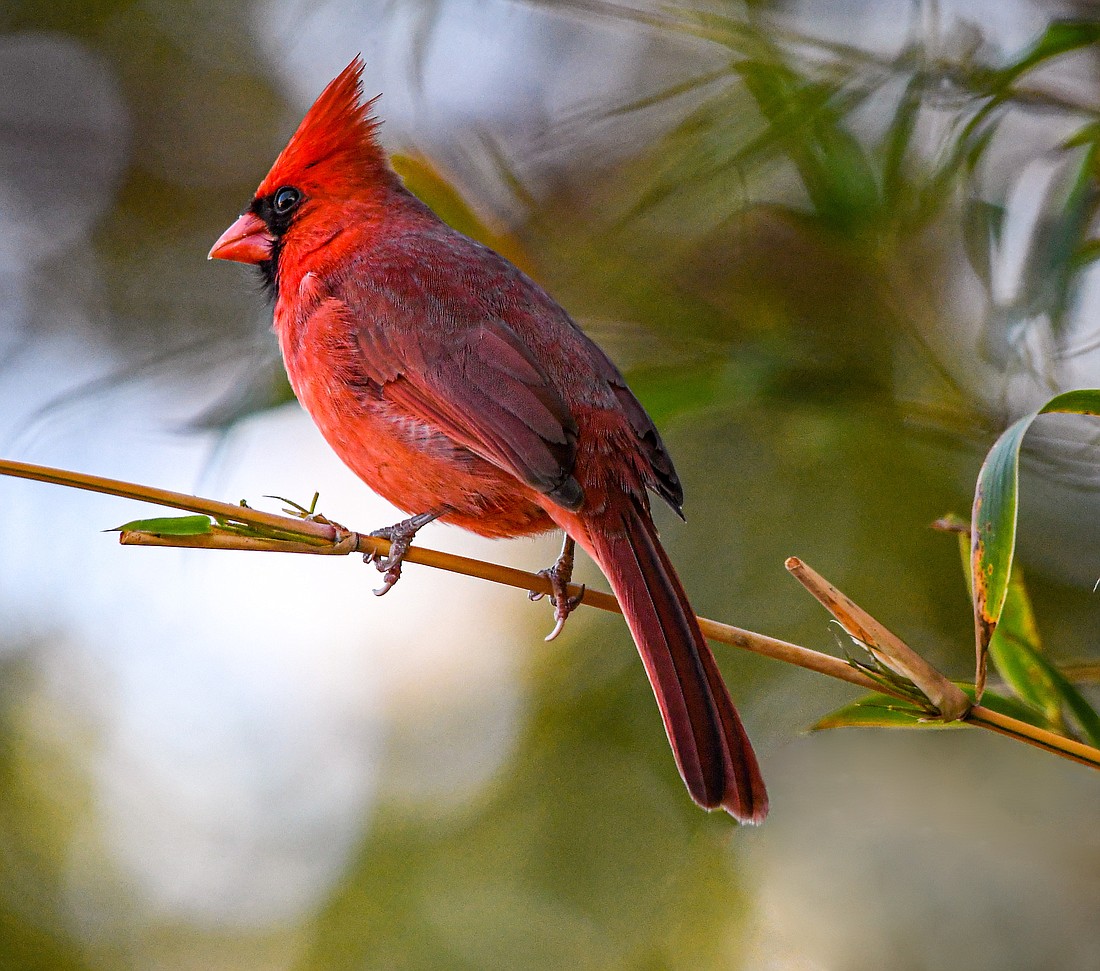- January 31, 2026
-
-
Loading

Loading

With their sweet songs, and brilliant plumage, northern cardinals, our most abundant songbird, are an audible and visual delight.
The brilliant red plumage of male northern cardinals reminded early English colonists of the robes of Roman Catholic cardinals, hence their name. The only cardinal native to North America, our species is set apart from several species are found in South America.
Northern cardinals live in a range of habitats, as long as a dense growth of shrubs, bushes, or small trees are available. Using their large, powerful bills to crack a variety of seeds, they mostly feed on plant matter. Mated pairs can be seen feeding together, with the male often offering food to his less vividly colored mate. And, unlike many other songbirds, both male and female Cardinals sing, often to each other.
In the 1800s, northern cardinals were trapped by the thousands and shipped overseas, where they were popular as cage birds. Thanks to protection by the Migratory Bird Treaty Act and other legislation, we can still enjoy these beautiful birds in the wild.
Like all small wildlife, northern cardinals are threatened by glue traps, used as pest control.
When small animals come into contact with these traps, they become stuck and can die of dehydration and exhaustion while trying to free themselves. And, as they're frequently found in the same backyards and parks where cats roam, Northern Cardinals are extremely vulnerable to cat predation.
Outdoor cats kill approximately 2.4 billion birds annually in the United States alone. We can help protect our songbirds by not using glue traps and keeping cats indoors.